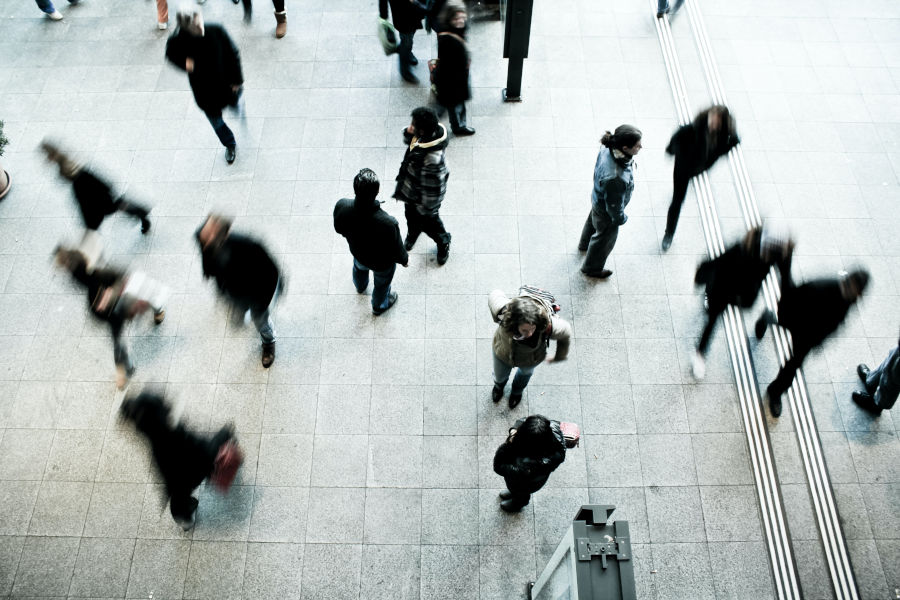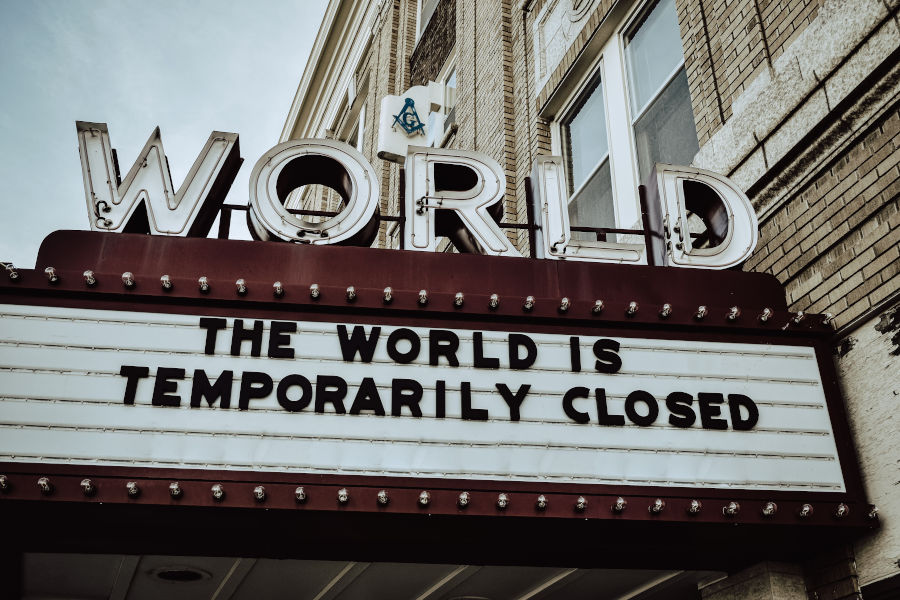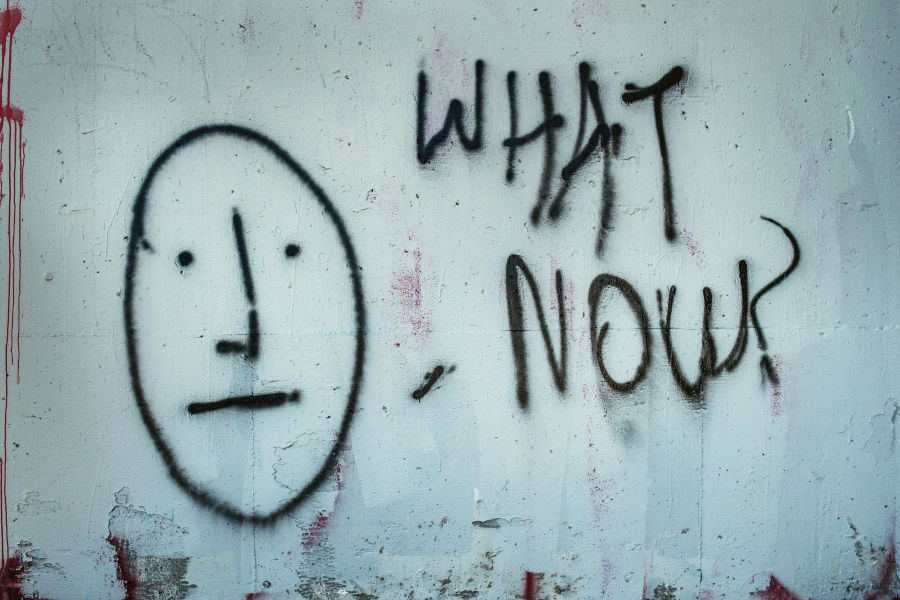Contribution from Shobha Nihalani
Anita’s partner died in a fire three years ago. It was all so sudden. She was heartbroken and numb with grief. While she continued to function, work, and interact with friends and family, she still mourns, and feels empty and alone. “People say they know what I’m going through. No, they cannot understand. Others say, why don’t you move on? It’s not easy to just move on… I need more time.” Loss and loneliness often go hand in hand.
In these times, more and more people have felt this sense of emptiness and sadness. The topic of loneliness has come to the forefront because of the Covid-19 world we live in. According to surveys, loneliness existed pre-pandemic, it is definitely not a new social problem; it has just become more obvious in these times of social-distancing and self-isolation. The multiple factors that contribute to loneliness make it a complicated inner world to navigate.
What is emotional loneliness?

Social psychologists define loneliness as the gap between an ideal and current social connection. Some attribute it to internal factors such as low self-esteem. Often, when people lack confidence in themselves, they are reluctant to socialize. Their inner fears and sense of unworthiness are the core reasons.
Webster’s dictionary defines ‘lonely’ as “being without company or cut off from others and producing a feeling of bleakness or desolation.”
Loneliness is a mixture of feelings, of rejection combined with a sense of isolation and emptiness. These are complicated emotions. Loneliness is increasingly becoming recognized as a health issue that affects us physically and mentally.
The most common types of loneliness

There are different types of loneliness. Even in a crowd or group, people can experience a sense of loneliness. Life is about relationships and we crave human connection. Still, when we feel that we are not wanted, ignored, or even belittled, that sense of rejection affects a person deeply, creating emotional loneliness. It is a feeling that no one truly understands you or what you’re going through. You feel that you cannot talk to anyone because they will not be able to support you.
Another form of loneliness that is happening more commonly is social isolation. Not just physically but emotionally as well, many find it difficult to adjust to pandemic restrictions. According to recent studies, there are high costs associated with the implementation of social distancing rules and quarantine procedures. These restrictions are in place to reduce the transmission of Covid-19. However, many have been affected mentally, experiencing a severe sense of isolation and loneliness.
If you are stuck in a hotel room or at home, it can affect your state of mind. The loneliness can at times make you feel that everything in your life is falling apart.
In other ways, loneliness becomes negative when you are in close proximity to family members who need constant care or are too demanding. In these times, many people are reevaluating their lives, trying to figure out the uncertainties and how to cope with them.
What are the root causes of loneliness?

There is no clear indication that social isolation will lead to loneliness. Does being alone actually mean you feel lonely? Not necessarily. Do fewer in-person interactions create a sense of hopelessness? Not true either. There are people who live alone, are they all necessarily feeling lonelier in the pandemic? We don’t really know.
Loneliness is a phenomenon that is not as simplistic as a cause and effect. Factors like quality of life, economic conditions, relationship issues, health of loved ones, and other stressors can trigger feelings of loneliness, otherwise understood as the gap between what we want our social world to look like and what it actually looks like.
Research shows that certain personality traits can lead to feelings of isolation. For example, introverts prefer to be on their own. Their tendencies could lead to loneliness. Introverts crave solitude and probably prefer to be on their own. However, if there is something else that adversely affects their lifestyle, it could trigger feelings of hopelessness.
Often, when work or relationship dynamics change, conflicts arise, which lead to feelings of being misunderstood and resentment. A person going through such changes will feel alone, lost, and like no one understands them.
What happens when we spend too much time alone?

Studies indicate that loneliness can be damaging to health. When we feel lonely, we become sad and empty, the body becomes lethargic. As the feelings become habitual, it becomes anhedonia, or the inability to feel pleasure. Adding on to that there is anxiety and lack of confidence to do anything different. As time goes by, there is a sense of hopelessness. The body further loses energy and there’s a loss of the ability to concentrate on any activity. Some days, insomnia persists, other days you might sleep too much. To numb these feelings, some people may resort to alcohol, recreational drugs, or overconsumption of media.
We are wired to be social. No matter how shy or introverted you may be, loneliness is not a life goal. Being alone or spending time in solitude to self-reflect are good habits. However, ruminating and over-analysing everything in an echo chamber with yourself are not helpful habits. If one is lonely, being aware of one’s own feelings, attitude to life, and reactions to people, will help understand oneself better. With that understanding, change can happen.
It happens that lonely people do not want to pose a burden and therefore avoid reaching out to others. Anita shared that some traits of loneliness include apprehension to reach out because you are unsure about making the first move. She added that other mannerisms are “being more talkative when you meet people” or not wanting to “let people go when you finally meet them.” A lot of loneliness issues can lead to self-defeating behaviors, creating further anxiety.
How to cure loneliness? Find ways to connect in isolation

Experts believe that it is not the quantity but the quality of a social interaction that can combat loneliness.
Take small steps towards change. Something as simple as reaching out to another person with a smile can create a positive human connection. Even if it is someone you don’t know very well – your coffee server, the delivery guy, the guard, the lady at the supermarket checkout – even with your mask on, a smile is recognizable.
When you are stuck in isolation (physical and emotional) there are ways to reach out to people. Call up a friend, someone you trust, share your thoughts. For all you know your friend maybe experiencing similar lonely feelings, which is likely during this time in history. Another way is to connect with people online; through sharing you will notice you are not alone in your experience.
Very often, when we are feeling lonely, our self-talk becomes difficult to deal with. It reminds us of the negatives. Someone may have let you down in the past, or you faced rejection, the job may not be working out, and other spiralling thoughts can cause us to dwell. These kinds of thoughts affect our mindset.
Don’t ignore the sadness, but watch out for the negative thinking patterns. Another way to monitor your thoughts is to not compare yourself with others. Know that whatever highlight reels are revealed online, they are not the whole story. If you are prone to social media envy, do yourself a favour and stop scrolling. Keep your mind positively occupied. There is a popular online word game called Wordle; many variations of these game puzzles have come up that keep the mind busy in a neutral, light way. Create a vision board, journal your feelings, bake a cake, do something that keeps you mentally and physically moving.
A simple act of reaching out to someone can alleviate pangs of sadness. It may seem cliché to say that small acts of kindness can lead to happy hearts. For someone who is feeling alone, that small act could make a big difference.

Shobha Nihalani is a multi-genre author, ghost-writer, and mindset coach. She has been writing for over 25 years. Her recent book on self-esteem – Reboot, Reflect, Revive: Self-Esteem in a Selfie World – has become popular and is recognised for raising awareness on self-esteem.
Shobha believes that the way we communicate with ourselves, and others, has the power to impact our lives. Her expertise as a writing consultant and writer’s coach has given her the opportunity to guide people to acknowledge their own amazing potential to be unique, creative, and resilient in achieving their goals.
Learn more about Shobha Nihalani at www.shobhanihalani.com or contact her at shobhanovels@gmail.com.
Disclaimer: The opinions expressed in this publication are those of the authors and do not necessarily represent the views of The HK HUB.
Header image credits: Engin Akyurt via Unsplash




